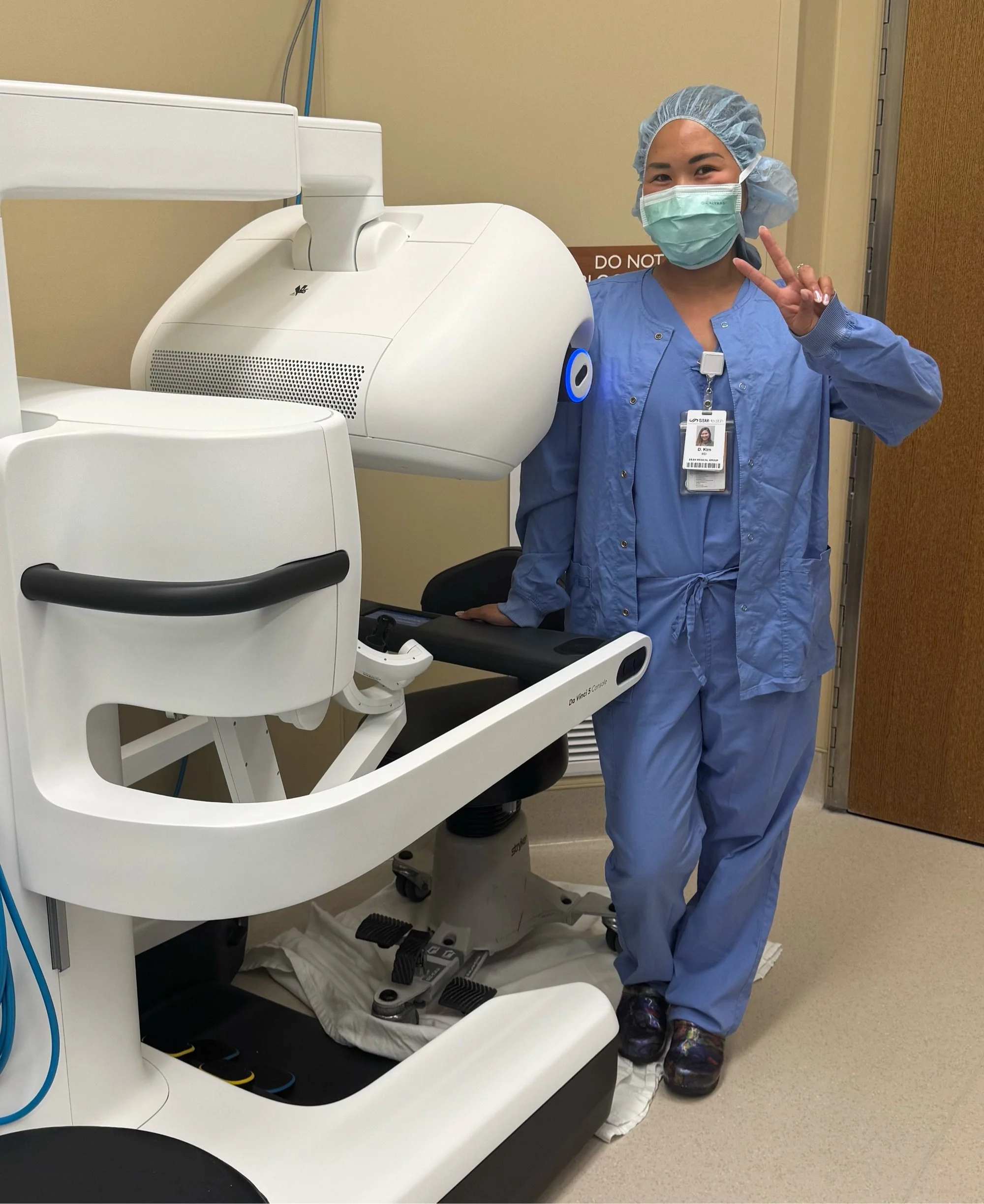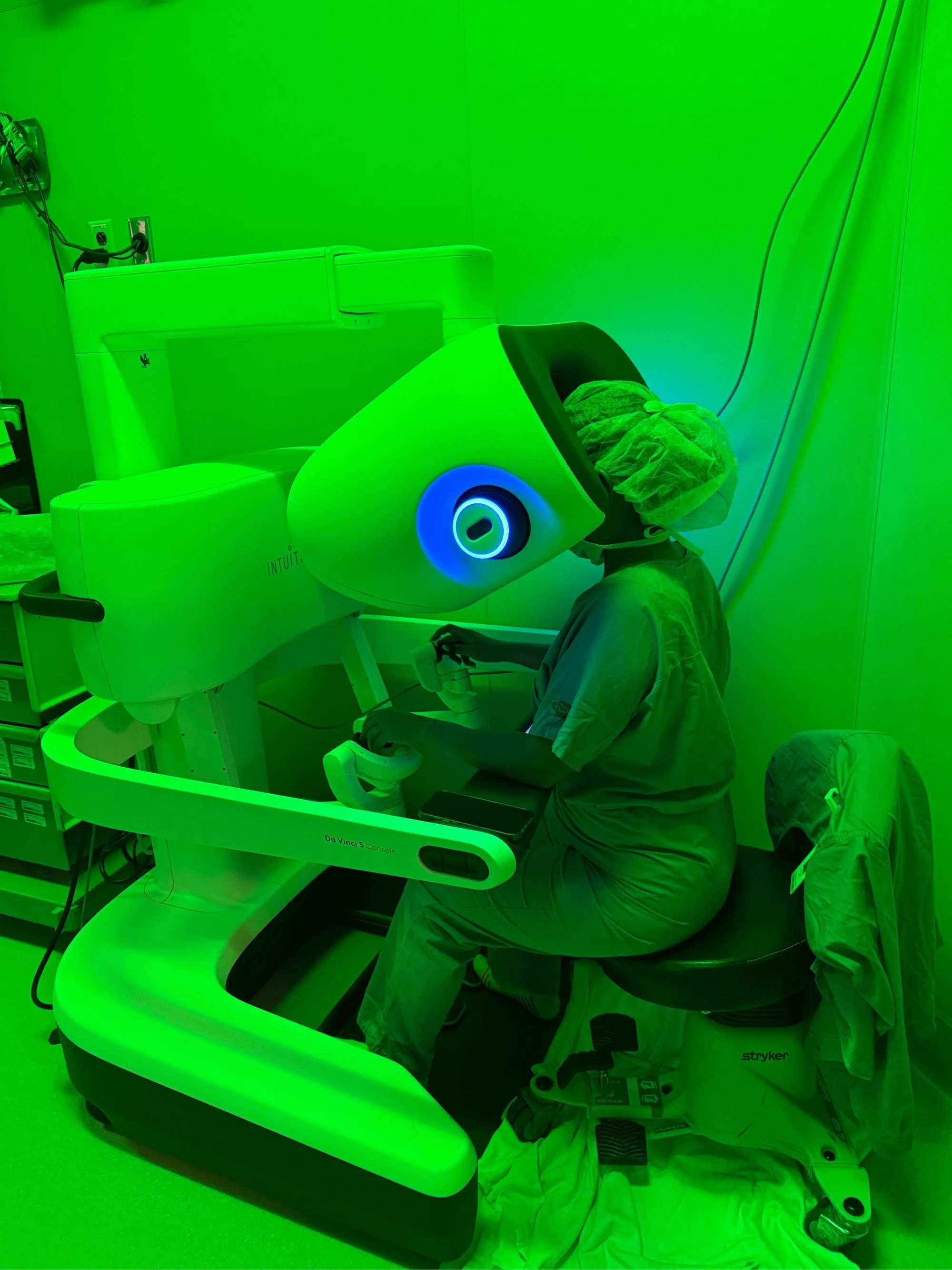
Madison Wisconsin Bariatric Surgery
Weight management is complex and multi-factorial, influenced by genetics, hormones, metabolism and behavior. Bariatric surgery remains the most effective and sustainable treatment for obesity.
Types of Bariatric Procedures
-
How does it work?
~70% of the stomach is removed
Patients get fuller faster
Part of the stomach that is removed produces a hormone called ghrelin, which is associated with hunger. By removing this part of the stomach you may be less hungry after the operation
50% excess weight loss expected
What are the Advantages?
Simple surgery with the lowest complication rates
What are the Disadvantages?
With the tubular shape of the stomach there is an increased risk of acid reflux
Weight regain appears to be most common after a sleeve gastrectomy
-
How does it work?
A small pouch is created
Connection is made between a loop of small intestine to the pouch
A second connection is made between two loops of small intestine
A section of small intestine is bypassed, meaning you end up absorbing less of your food
~60% of excess weight loss expected
What are the Advantages
Highly effective for improvement in type II diabetes
More weight loss than a sleeve gastrectomy, with typically more sustained weight loss
What are the Disadvantages
Much more restricted intake due to small pouch size
Cannot take NSAIDs or use tobacco products due to risk of marginal ulcers (stomach ulcers that can cause pain, bleeding, strictures, perforations, and may require emergency surgery)
Risk of bowel obstructions in the future
Higher risk of vitamin and mineral deficiencies
-
Single Anastomosis Duodeno-Ileal Bypass with Sleeve Gastrectomy (SADI-S)
How does it work?
A sleeve gastrectomy is created
A single connection is made between the duodenum and distal small intestine
Absorption occurs in only 300cm of small bowel
~70% excess weight loss expected
What are the Advantages?
Larger stomach reservoir
Very effective in resolution of obesity related co-morbid conditions
Can continue to take NSAIDs
What are the Disadvantages?
More complex operation with slightly higher risk
Even higher risk of vitamin and mineral deficiencies than RYGB
Reflux (not as high risk as sleeve gastrectomy)
Risk of bowel obstructions in the future (less risk than RYGB)
Minimally Invasive Surgery
With the aid of world-class robotic technology, surgery can be performed through smaller incisions—resulting in less pain, reduced risk of complications, and a quicker, more comfortable recovery. This advanced approach allows for greater surgical accuracy while prioritizing your healing and overall experience.
Precise Instruments
Seated at the surgical console, Dr. Doris Kim uses robotic technology to precisely control a high-definition camera and delicate instruments. These tools allow her to perform your procedure through just a few small, fingertip-sized incisions—minimizing trauma to the body while maximizing accuracy, safety, and outcomes.
Over 40% of adults in U.S. are living with obesity. More patients than ever are looking for effective ways to improve their health.
Obesity is not just about willpower - it’s a long-term, complex medication condition that can be caused by many factors, including metabolism, genetics, hormones, mental health, physical limitations, hormones and more. Unfortunately society often places unfair blame on individuals, leaving to shame and guilt that shouldn’t be there.
Dr. Kim understands how complicated obesity really is and wants to help reduce the stigma around the disease. She works with patients using proven, science-backed treatments to help them take control over their health. Not fads.
Bariatric (weight loss) surgery is the most effective way to achieve and maintain significant weight loss. It can improve or even reverse serious health conditions such as type 2 diabetes, heart disease, hypertension, sleep apnea, and even certain cancers. Research has shown it can help people live longer and healthier lives.
Many people after bariatric surgery report feeling more energetic, having less back and joint pain, being able to move more easily and can now run around their kids and grandkids again.
Weight management is best done in a team of experts working together- including doctors, dietitians, behavioral therapists, nurses and surgeons. Look for a program that takes a holistic approach and is committed to supporting you for the long term.

